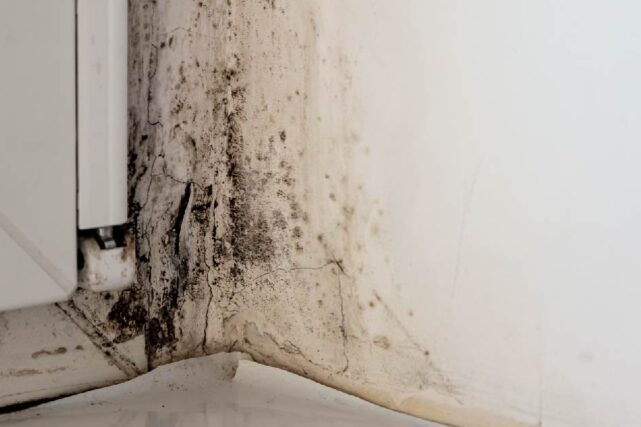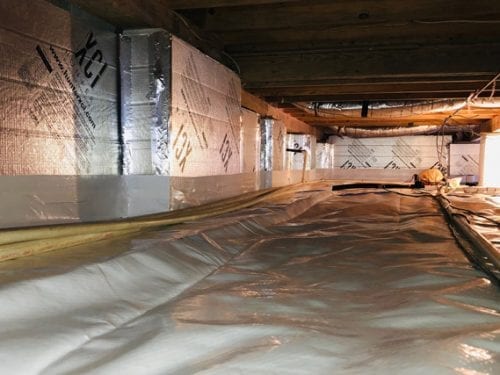
Basement waterproofing is a critical first step to home safety and integrity. It protects against water intrusion, leading to structural damage, mold growth, and poor air quality.
A waterproofing professional can evaluate your home’s conditions and suggest the most effective strategy. While hiring experts is often the best approach for complete protection, various DIY waterproofing methods are available. These can complement the professional work done and strengthen your basement’s resistance to water damage.
Why You Need a Dry Basement
The importance of basement waterproofing spans many reasons. Firstly, a dry basement maintains the structural integrity of your house.
Moisture is notoriously detrimental to construction materials, gradually wearing them down and compromising your home’s stability. Beyond the physical framework, the health and safety of your family are at stake. Damp environments are breeding grounds for mold and mildew, which can degrade air quality and lead to respiratory issues or other health concerns.
A dry basement also means your possessions are safe from water damage. Wet basement repair opens up the potential to use this space creatively, whether as a cozy home office, a game room, or any other functional area that suits your lifestyle.
5 Causes of a Wet Basement
- Landscape Grade
An incorrect landscape slope directs water to your house, causing basement water issues. This often occurs as the soil settles after construction, changing the original slope.
- Improperly Sloped Patios and Walkways
Patios and walkways sloping toward your home can funnel rainwater toward the foundation, increasing the likelihood of basement moisture.
- Poor Drainage and Gutters
Mis-sized or clogged gutters can cause water pooling near the foundation, increasing basement moisture risk.
- Foundation Cracks
Cracks in your foundation walls are major avenues for water to seep into your basement, creating moisture issues and structural damage.
- High Water Table
A high water table can exert pressure on basement walls, encouraging leaks.
How to Waterproof a Basement from the Inside
Inspect and Identify Issues
- Regularly check for signs of water infiltration: dampness, stains, or mold.
- Look for visible cracks in walls or bowed/tilted walls.
Use a Dehumidifier
- Install a dehumidifier to reduce moisture in the air. Lower humidity prevents mold growth and improves air quality.
Seal Cracks and Holes
- Seal any cracks or holes in the walls using watertight bond or other masonry waterproofing products.
Improve Drainage
- Extend downspouts away from the house, or install a dry well or sump pump to divert water.
How to Waterproof a Basement from the Outside
Grade the Yard
- Grade the soil around your home to ensure proper drainage away from the foundation.
- Use a shovel and wheelbarrow to adjust the slope, directing water away from the basement.
- Ensure patios and walkways have a minimum slope of 1/4 inch per foot away from the foundation.
Install or Improve Gutters
- Gutters capture roof water runoff and direct it away from the foundation. Ensure gutters are clean, free of debris, and properly positioned.
Seal Exterior Foundation Wall
- Apply a liquid synthetic membrane, solid sheets of bentonite, or synthetic sheet membrane to the outside of the basement walls. These materials create a barrier against water infiltration.
Install Exterior French Drain
- Excavate the soil around the foundation to the full depth of the foundation walls.
- Install a drainage system like a French drain at the base of the foundation with a professional that offers basement flooding repair. The French drain collects and channels water away from the basement before it reaches the interior.
How to Hire a Basement Waterproofing Professional
When the waterproofing task exceeds DIY capabilities, hire a professional for the best results. Research, verify credentials, ask for references, and consult professional organizations to find a reliable and experienced contractor for your project.
Virginia Foundation Solutions has proven methods and drainage systems to fortify your basement, like the WaterGuardⓇ, a non-clogging waterproofing system, or CarbonArmorⓇ and GeoLock™, which can stabilize bowing walls and help repair large cracks. Schedule a free basement waterproofing inspection with us to get started.


